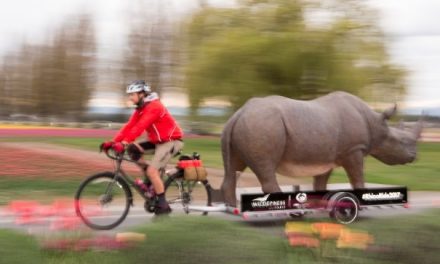
UK Charity raises funds at expense of Africans, says Chamber of Environment

By Dr Chris Brown
Namibian Chamber of Environment.
As the UK parliament consider bans on hunting trophy imports, community leaders representing millions of rural Africans have launched an official complaint against one of the key players in the campaigns against trophy hunting.
Representatives from communities of six southern African nations are accusing celebrity-backed animal charity the Born Free Foundation of waging a campaign of disinformation against trophy hunting that will damage African conservation activities, and undermine their human rights and livelihoods.
The complaint to the Charity Commission for England and Wales focusses on the Born Free Foundation’s continued assertion that hunting “does not support conservation or local livelihoods”. Community leaders from Botswana, Namibia, South Africa, Tanzania, Zambia, and Zimbabwe, all of which have trophy hunting as a significant part of their successful conservation strategies, state that the Born Free Foundation’s assertions that trophy hunting doesn’t support local communities or conservation are “demonstrably false” and “misleading.”
Angered at continued efforts to undermine their conservation achievements, and right to sustainably manage wildlife, the leaders’ (who represent several million people) complaint states “that the actions of this Charity serve to undermine the human rights and livelihoods of several million people living in our communities, as well as threaten the continuing success of our globally recognised conservation programmes.”
Further, they point out that by requesting donations to support their campaign, the Born Free Foundation is raising revenue on the basis of demonstrably false information. This is in direct contravention of the Charity Commissions Fundraising Code, which states ‘fundraising materials must not mislead anyone, or be likely to mislead anyone, either by leaving out information, or by being inaccurate or ambiguous or by exaggerating details.”
So far, despite requests for updates, the complaint has gone unaddressed and the charity continues its activities. “Whilst UK charities no doubt have the right to campaign for the rights of African animals, this right cannot come at the expense of African people’s rights to sustainably manage the resources on which our livelihoods rely or at the expense of the truth, science and fact. The Born Free Foundation’s continued distortion of the facts jeopardises conservation and our livelihoods and they should not be allowed to continue to campaign and raise money through disinformation campaigns. It is disappointing that the Charity Commission has to date not acted upon our complaint in a manner which produces results,” said Maxi Pia Louis, Chair of the Community Leaders Network.
Trophy hunting, though controversial to many, is recognised by the IUCN, on the basis of strong scientific support, as a conservation tool that “can – and does – positively contribute to conservation and local livelihoods in the face of intense competing pressures on wildlife habitat and widespread poaching.”












































